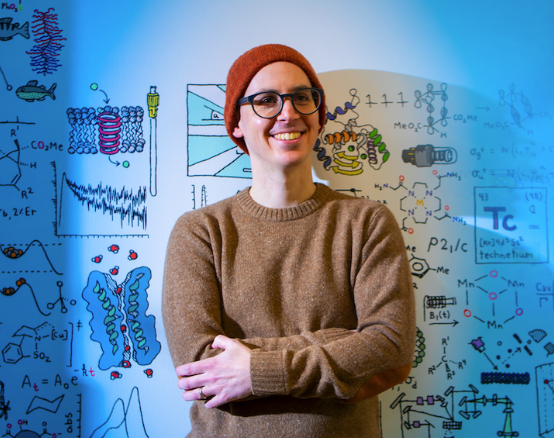Abstract:
The use of metal-ligand bonding as a driving force for self-assembly reactions enables the construction of polynuclear architectures. Depending on the building blocks used, the resulting assemblies may be discrete molecules or extended frameworks. The Cook Group explores coordination-driven self-assembly with an emphasis on functional designs. By exploiting the presence of multiple metal centers and rigid organic building blocks, it is possible to design metal-organic architectures that are capable of catalysis, electrochemical energy storage, and separations chemistry. We have also studied the so-called emergent properties that result when two or more photoactive building blocks interact within a structure, to give photophysical properties that differ from the parent tectons. This talk will introduce fundamental aspects of coordination-driven self-assembly and then will highlight our advances in the area of oxygen reduction electrocatalysis and other processes of relevance to renewable energy.
Timothy R. Cook is a Professor of Chemistry and Director of Graduate Studies at the University at Buffalo. He carried out undergraduate research in the Caradonna Group at Boston University prior to his PhD studies in the Nocera Group at MIT. After a postdoc in the Stang Group at the University of Utah, he began his independent research career at the University at Buffalo in 2014. He received tenure in 2020 and was promoted to full professor in 2022. Research in the Cook Lab is centered around synthetic coordination chemistry with an emphasis on functional materials. Other areas include designing synthetic pathways to bio-derived high-energy density fuels and nanomaterials for energy storage. These projects have been supported by funding from the NSF, DOE, NIH, and DOD. During faculty meetings, Cook typically scribbles orbitals, glassware, and other chemistry-relevant things, though he insists he is paying attention the entire time.
Bio:
Timothy R. Cook is a Professor of Chemistry and Director of Graduate Studies at the University at Buffalo. He carried out undergraduate research in the Caradonna Group at Boston University prior to his PhD studies in the Nocera Group at MIT. After a postdoc in the Stang Group at the University of Utah, he began his independent research career at the University at Buffalo in 2014. He received tenure in 2020 and was promoted to full professor in 2022. Research in the Cook Lab is centered around synthetic coordination chemistry with an emphasis on functional materials. Other areas include designing synthetic pathways to bio-derived high-energy density fuels and nanomaterials for energy storage. These projects have been supported by funding from the NSF, DOE, NIH, and DOD. During faculty meetings, Cook typically scribbles orbitals, glassware, and other chemistry-relevant things, though he insists he is paying attention the entire time.
Speaker:
Institution:
Location:

